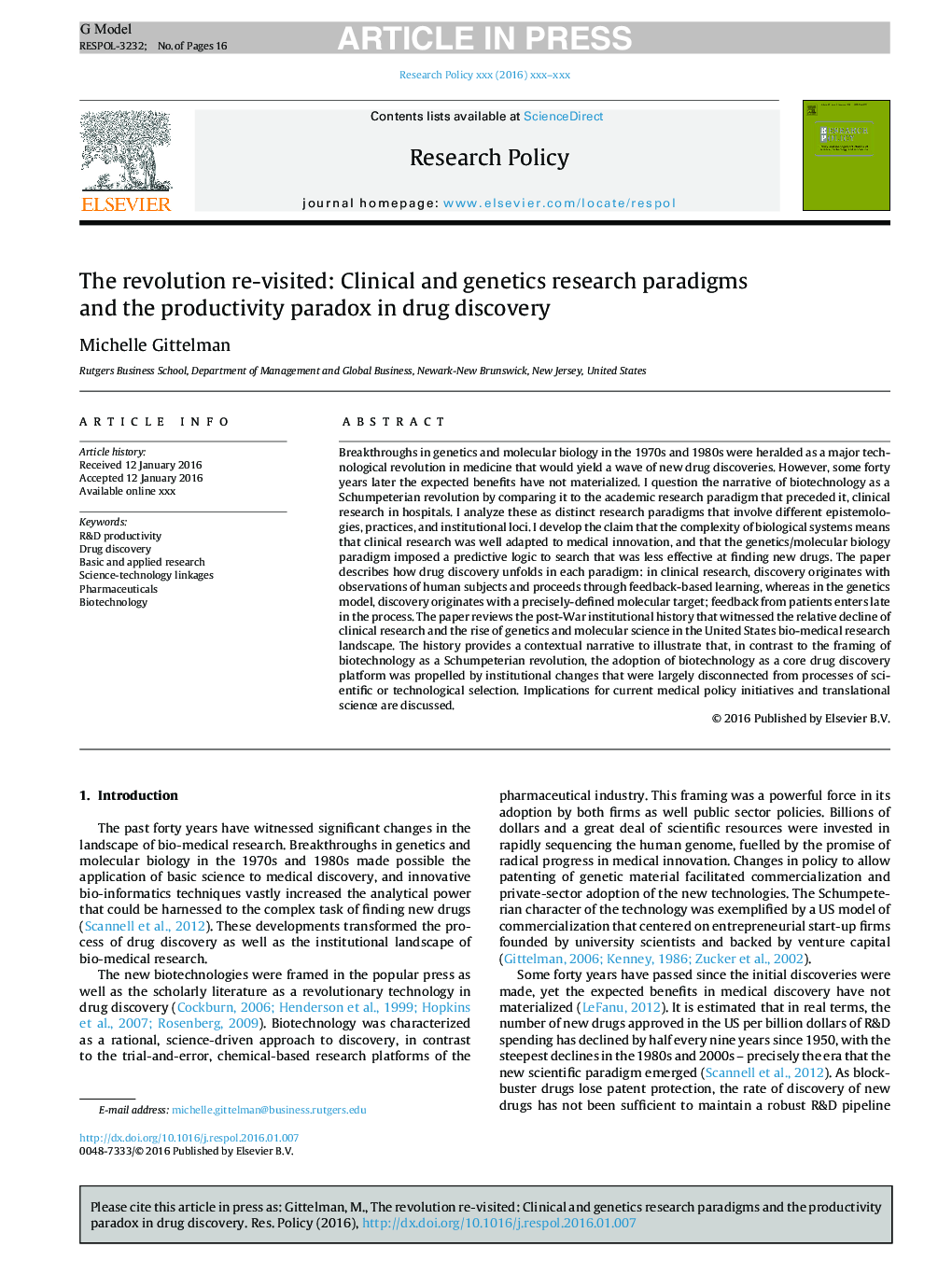| Article ID | Journal | Published Year | Pages | File Type |
|---|---|---|---|---|
| 5103965 | Research Policy | 2016 | 16 Pages |
Abstract
Breakthroughs in genetics and molecular biology in the 1970s and 1980s were heralded as a major technological revolution in medicine that would yield a wave of new drug discoveries. However, some forty years later the expected benefits have not materialized. I question the narrative of biotechnology as a Schumpeterian revolution by comparing it to the academic research paradigm that preceded it, clinical research in hospitals. I analyze these as distinct research paradigms that involve different epistemologies, practices, and institutional loci. I develop the claim that the complexity of biological systems means that clinical research was well adapted to medical innovation, and that the genetics/molecular biology paradigm imposed a predictive logic to search that was less effective at finding new drugs. The paper describes how drug discovery unfolds in each paradigm: in clinical research, discovery originates with observations of human subjects and proceeds through feedback-based learning, whereas in the genetics model, discovery originates with a precisely-defined molecular target; feedback from patients enters late in the process. The paper reviews the post-War institutional history that witnessed the relative decline of clinical research and the rise of genetics and molecular science in the United States bio-medical research landscape. The history provides a contextual narrative to illustrate that, in contrast to the framing of biotechnology as a Schumpeterian revolution, the adoption of biotechnology as a core drug discovery platform was propelled by institutional changes that were largely disconnected from processes of scientific or technological selection. Implications for current medical policy initiatives and translational science are discussed.
Related Topics
Social Sciences and Humanities
Business, Management and Accounting
Business and International Management
Authors
Michelle Gittelman,
